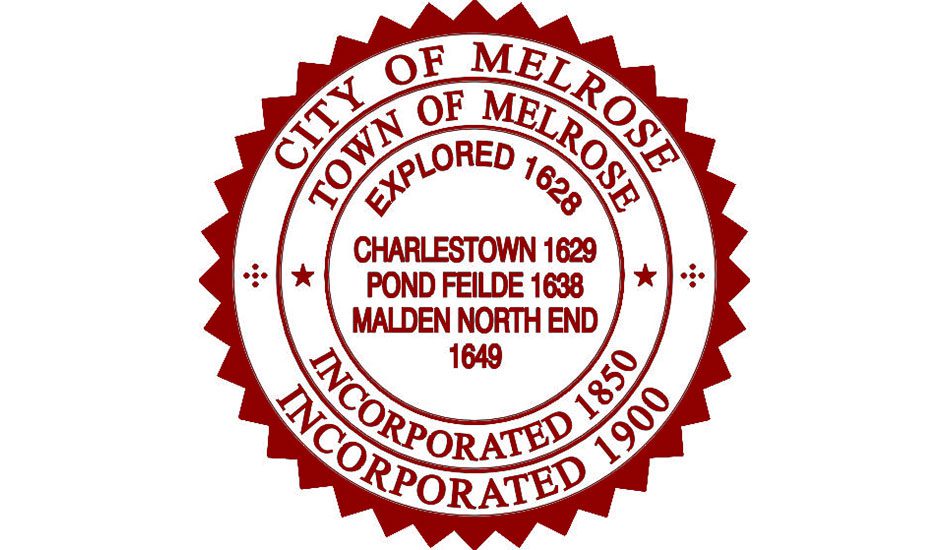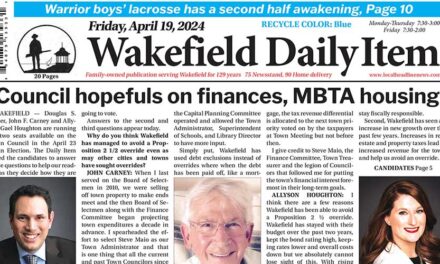MELROSE — As financial overseers were closing out the budget for the year ending last June 30, they were startled to find the city’s school system had come up more than $2.2 million short.
Supt. Dr. Julie Kukenberger told the School Committee all about it at their meeting on Tuesday, September 27. Using every available resource, the shortfall is expected to be closed to about $775,000. But certain issues remain, and Kukenberger said they will be dealt with so a deficit of this magnitude does not happen again.
Some School Committee members said they certainly hope it doesn’t.
Others in the community expressed their total displeasure.
The shortfall came about primarily in four ways, the superintendent said.
• Specific grant funds like METCO, Title I and IDEA 94-124 (a program for kids with disabilities) had for years been built into and managed in the schools’ operating budgets. This led to a shortfall of $1.26 million last fiscal year.
• Transportation costs exceeded the projected budgeted amount by $679,766.
• The Franklin Early Childhood Center generated less tuition revenue while requiring the same level of staffing to support the youngest learners resulting in a $438,879 revenue shortfall.
• And the need to provide coverage for teachers and staff due to extensive COVID-19 absences and restrictions on timelines for returning to work resulted in an estimated $405,013 of unbudgeted coverage costs.
A firm has been hired to help analyze past budgets and budget practices.
In a letter, Kukenberger told school employees:
“In early June, I began to learn about some concerns regarding end-of-year processes including end-of-year account reconciliation and closeout. Later, on July 12, I was informed that there may be a significant FY22 budget shortfall. Immediately upon learning of this potential, the new director of finance and I began collaborating with our colleagues in the City Auditor’s office to determine the magnitude of the shortfall.
“In a slideshow, I share how we identified the problem, the actions taken to mitigate the budget shortfall, and the next steps designed to ensure that this never happens again.
“As the Superintendent, one of my many important responsibilities is to lead the administrative team to develop a budget that is aligned with the district’s mission, vision, values, and goals and addresses the needs of all students. This includes allocating and managing expenditures and revenue sources and effectively communicating the budget rationale with staff, community members, and stakeholders. Ultimately, as the superintendent, the budget is my responsibility. Therefore, I take full ownership of the current fiscal reality.
“It is also imperative that we maintain separation between the FY22 shortfall (already incurred expenses) and the FY23 staffing shortages we are currently experiencing. The PreK-Post Grad educator shortfall is impacting the entire Nation.
“Moving forward, please rest assured that the needs of our students and supporting our educators will remain our number one priority.”
According to Kukenberger, Mayor Paul Brodeur is “strongly considering allocating American Rescue Plan Act (ARPA) funds to meet the district’s financial obligations and facilitate the closing of the FY22 school budget.”
East Emerson Street’s Ward Hamilton wrote in a letter to the Melrose Weekly News that the integrity for the entire School Department is at stake. How things are dealt with from this point and how transparent the process is will go a long way in determining its credibility. Up to this point, Hamilton has had his doubts.
“Mayor Brodeur stated that the district will need to ensure transparency and an understanding of the impacts of this sudden shortfall saying, ‘The transparency and the candor is going to be what gives us the credibility that we’re going to need.’ School Committee vice chair Jen Razi-Thomas said, ‘It’s going to take us a while to figure out the solution. And it’s going to take a while to rebuild trust with our community, with ourselves and with the process.’ School committee member Ed O’Connell said, ‘The big question for me as a member of this School Committee is ‘How could we not have known this?’”
Hamilton continued, “Rebuilding trust in the community will require transparency in answering that question in the weeks ahead. When Kukenberger became aware of the budget deficit on July 12th, she was in the process of her annual evaluation by the School Committee. On July 22nd, School Committee chair Jen McAndrew issued a memorandum to the School Committee advising that Kukenberger was successful in her evaluation. Further, McAndrew proposed that the School Committee approve a raise for Kukenberger at their July 26th meeting. The final report of the superintendent’s evaluation and the raise were approved by the school committee on July 26th.
“On September 27th, Kukenberger stated that the budget is her responsibility and that she takes full ownership of ‘the current fiscal reality.’ However, part of that responsibility requires that she keep the School Committee abreast of any budget-related issues such as the deficit that she identified more than two months earlier. Did she keep the information secret so that she would receive a positive evaluation and raise? Did anyone on the School Committee, including the Mayor, know about this before Tuesday night (September 27)? If so, who knew and when did they find out?
“There is an integrity issue here, and it starts with the superintendent. Being transparent and rebuilding trust will require a firm understanding of who knew what and when. If Kukenberger kept the budget deficit a secret until after her evaluation was completed then her integrity has been compromised and she is unfit to serve further. If anyone on the school committee knew about the issue before her evaluation was completed and accepted on July 26th, and did not publicly share the information with the rest of the committee, then their integrity has been compromised and they should resign from their office.
“If the Melrose School Committee wants to earn back the public’s trust then only complete transparency will make that a possibility. Anything less will only worsen the situation,” Hamilton concluded.





